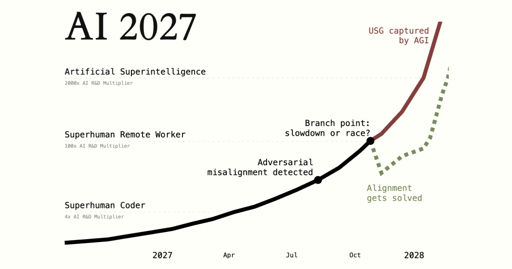Thanks Microsoft for admitting that Wimdows sucks. You didn’t even try really.
just trying lemmy
- 3 Posts
- 53 Comments

 6·2 months ago
6·2 months agoMaybe they should also ban lobbying by Google, Microsoft etc.

 13·3 months ago
13·3 months agoAnd it costs innocent people their lives or makes it at least very miserable. Yeah, what to spend billions for…

 10·3 months ago
10·3 months agoUse uMatrix and see more sewage

 8·3 months ago
8·3 months agoLet’s poke the bubble.

 3·3 months ago
3·3 months agoIn thie fesiverse graphic each person has exactly 1 connection to a fediverse thing. But in reality, there can be more. I guess in practice there are often more than one.

 5·3 months ago
5·3 months agoThere’s nothing stopping you from using GPL.
But there is a culture - I think even explicit - of using MIT or APACHE licensing. In some sense is okay, because it simplifies crate compatibility. But it comes at the cost of feeding the usual suspects who now obviously turn against humanity.
My unconfirmed suspicion is that there are forces behind (Google, Microsoft, Amazon, Meta) who like permissive licenses because this makes it easier for them to exploit the work of the public.

 10·3 months ago
10·3 months agoAlways have some chewing gum ready. (I would advise for cyanoacrylate but that’s illegal in some places because you could use it to stick yourself to the road as a form of protest)

 533·3 months ago
533·3 months ago“Could lose”? We are long past this point. When you can chose between two parties and they try to manipulate the election as hard as they can, then that’s a zombie democracy at best. And now? The president stands above the law. He can fire people illegally. He can disable law enforcement. Democracy in the US is gone. Hopefully only temporarily. Now it’s up to people to act, take their rogue government down and repair what can be repaired.
Is tempting to check if it’s still down. But wom’t touch this ugly domain.

 3·4 months ago
3·4 months agoIt seems a scary move but at some point you have to do what is right and not what is easy.
Oh no, that’s sad to hear. Society really needs to start doing more clever decisions. A project like Librewolf could be so incredibly useful for most of people. Somehow should find a way to foster those efforts.

 13·4 months ago
13·4 months agoPlease panic. There’s Librewolf. A deshittified Firefox fork. Would be great to support that project.

 71·4 months ago
71·4 months agoWhat a strange universe we live in. The old US: pushing surveillance and police laws to fight terrorism, drug dealers, and pedophiles. The new US: has a president who is of open to terrorism by supporting far right groups and storming the capitol, has a billionaire on his side who really seems to be on some psychoactive substances, and now this.
If everybody would as a consequence use Librewolf, Mozilla would be forced to change minds.

 412·4 months ago
412·4 months agoWindows also used to show me the ugly face of Trump in the start menu even if I didn’t ask for it. That was more than 4 years ago. Recently was accidentally hovering over some ‘copilot’ button in Edge of a friend. And again - pop-up with Trump. So yes: fuck Windows, fuck Microsoft

 1·4 months ago
1·4 months agodeleted by creator

 1·4 months ago
1·4 months agoHow about another type of control: by default your profile is not federated. Then you manually select the instances you trust. And your data getcs shared only with those. Dating usually is kind of local anyway. If i live in australiay I’m likely not interested in matches from the UK. So instances could already serve as some pre-selection based on your region and possibly community type.

 4·4 months ago
4·4 months agoMy last impression was that alovoa would need a lot of work still. It’s also the best thing I’ve seen so far but it’s very buggy unfortunately.



Taara is Google, just saying.